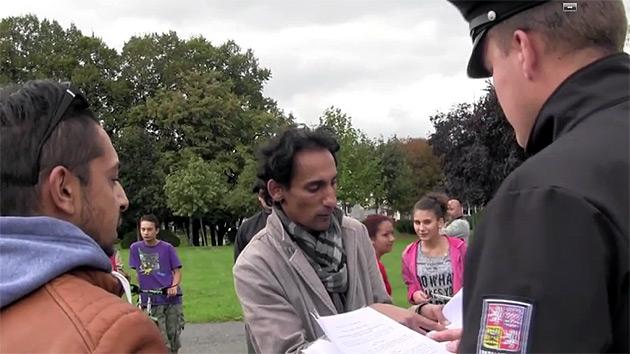Czech Constitutional Court decides local ordinances that ban sitting anywhere but on a bench are unconstitutional

The Czech Constitutional Court has abolished the sections of ordinances issued by the towns of Litvínov and Varnsdorf that ban sitting in public anywhere but on a bench. Czech Public Defender of Rights Anna Šabatová filed a motion with the court over the decrees.
Sitting, according to the court, is not in and of itself a disruption of public order. While it can be a so-called precursor to the commission of a misdemeanor, it is not an exclusionary activity, which means the degree of social harm it represents is too low to legitimize raising such behavior to the level of an already-perpetrated misdemeanor, Justice Jaroslav Fenyk said.
Varnsdorf issued its ordinance in 2012. Litvínov issed an identical one a year later. The ordinances ban sitting outdoors anywhere but on equipment designed for sitting, i.e., not on curbs, stairs, walls, etc.
The court has now said that this banned sitting cannot in and of itself be considered a local matter that might disrupt public order. “For that it would be necessary for a person to commit other behavior that met that definition,” Fenyk said.
The towns argued that people who sit on curbs with their legs in the road, or who sit directly in the road, are endangering the safety of traffic. Such behavior, however, according to the court, can already be considered a misdemeanor under existing law and does not require a special ordinance.
The court pointed out that police patrols are authorized to call upon persons to do things and failure to obey an officer’s instruction is in and of itself a misdemeanor. By using this power in such cases, the police can prevent the eventual commission of any misdemeanors that persons sitting in places other than benches might be on the way to perpetrating.
The judge said the law must be predictable so that people can, to a reasonable degree, predict the potential criminality of their future behavior and, according to that predictability, regulate their behavior and predict the legal consequences of their actions. “This is not just about people who permanently reside in the municipality, but also about persons passing through. It is not possible for a person to be charged in one municipality for sitting on something that is not a bench, but not charged for that same behavior in another,” Fenyk said.
The Mayor of Varnsdorf, Stanislav Horáček (ANO), has said he disagrees with the Constitutional Court’s decision. “This ordinance protects children,” he told the Czech News Agency.
“They sit on curbs with their legs sticking into the street, but that doesn’t bother Madame Public Defender of Rights. This state does not know how to behave according to common sense,” the mayor lamented.
The town hall is also bothered by the approach allegedly taken by the Office of the Public Defender of Rights. “She could have opened an office here, she could have lived here for free,” the mayor said.
“We would have given all of that to her so she could see, in the light of reality, what it looks like here. She never came here, she decides these things from her office in Brno,” the mayor criticized.
Similar ordinances exist in other towns, most of them in northern Bohemia, such as Bílina, Duchcov, Krupka and Rotava, and have not yet expired. Fenyk said now those towns must, according to the Constitutional Court’s finding of 14 July, follow the judgment and abolish the ordinances as unconstitutional.
The Constitutional Court has previously reviewed controversial ordinances from the towns of Přerov and Vojkovice u Brna. The Přerov ordinance required trucks transporting bulky, dusty cargo to do so under a tarpaulin in an effort to reduce dust in the town.
The Vojkovice ordinance banned door-to-door sales and established that selling goods and offering services without using a shop inside a building, i.e., by using street stalls, can only be done at locations designated by the municipality. In both cases, according to the Constitutional Court, the municipalities exceeded their powers when they adopted ordinances of that scope.
